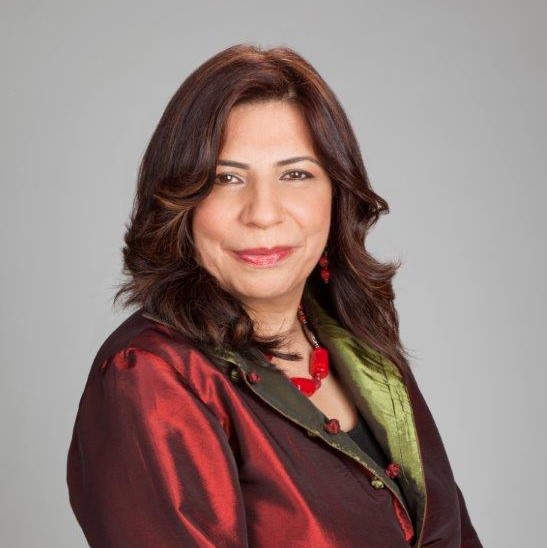COVID-19 is undoubtedly the most defining global health crisis of our time and the greatest global humanitarian challenge the world has faced since the Second World War—both in terms of the toll it has taken on human life and well-being, and its impact on the economy. Therefore, our response to the pandemic also needs to be two-pronged—protecting ourselves and our communities from contracting the virus, while at the same time ensuring that stringent measures do not push large numbers of the population into acute poverty.
Now that the lockdown is gradually lifting, and recovery agendas are being fueled by governments world-over, philanthropic foundations have multiple important roles to play. We need to support relief efforts, enable people to go back to work, and kick-start livelihoods, while at the same time, adequately support the public health system.
Related article: Supporting nonprofits beyond the crisis

Currently, we are seeing many donors shift their focus from issues like mission drift of their grantee partners—as they prioritised relief efforts in their communities—to the core work that needs to be done. This approach would need to continue post COVID-19 as well.
At The Rockefeller Foundation, we have made new commitments of at least USD 50 million globally, to enable our partners in Asia, Africa, Latin America, and the United States to respond to the crisis urgently. We are also helping our partners to pivot their activities to supporting some aspects of the COVID-19 response. In India, we are making strategic investments in scaling the production of testing kits, to enable people to return to work safely.
Creating opportunities for meaningful work and preserving livelihoods is critical for civil society organisations and philanthropies alike.
However, many of the worst hit sections of society don’t have any work to return to. Thus, creating opportunities for meaningful work and preserving livelihoods is critical for civil society organisations and philanthropies alike. In India itself, between 19-43 percent of micro, small, and medium enterprises (MSMEs)—the sector which is responsible for 90 percent of jobs in India—may shut down. This could be the case because of relatively simple reasons, such as inability to pay salaries, utility bills, and so on, and we can help them tide over this time by solving liquidity and cash flow issues. To this end, we have been working with the Michael & Susan Dell Foundation, among others, to catalyse a blended finance facility for India’s micro-entrepreneurs.
Based on our experience of responding to the crisis in these different ways, here are four guiding principles that might be helpful to other philanthropic foundations as we all work through this period of uncertainty and change:
In times of crisis, philanthropies play one of the most important roles—to plug the gap left by the public and private sectors. That is where we can add the most value. We must respond to problems with greater agility, because we aren’t restrained by the social contract citizens have with the government, nor are we trying to secure financial returns like businesses do. Thus, we can be malleable and act creatively.

We look at our resources as high-risk capital, and at a time when there is so much uncertainty, we must go with our gut and be guided by our instincts. This may require a departure from the annual goals that foundations may have set for themselves and their partners, and might need grantees to shift gears and address immediate concerns, while keeping the long-term objective in sight.
Nimbleness also means that you size up whatever opportunity there is. Civil society organisations have time and again demonstrated utmost agility. In this regard, our partner SEWA’s work has been exemplary. It swiftly set up on-ground networks to produce lakhs of masks each day, and it all started with four or five women learning how to make them and circulating instructional videos to their networks via WhatsApp. As philanthropists, the ball is now in our court to meet civil society half way, and support it in the most effective manner possible.
All philanthropists can do is innovate and strategise as we move along and not be afraid to make bold strokes to carry out our mission. | Picture courtesy: Rawpixel
In the case of most large foundations, grant-making and due diligence processes tend to be long and time-consuming. But we do not have that luxury in times of crisis. At The Rockefeller Foundation, we have put together a core team comprising all the functional heads (legal, programme, finance, and so on) to fast-track the process of evaluating proposals and ensure quick decision-making. The Foundation’s president has also committed to a 24-hour turn around for all COVID-19-related proposals that require his approval. Departure from traditional processes can be challenging for foundations, but it is imperative to attempt it nonetheless.
Donors need to take risks, because there is no ready solution to the crisis we are facing today. All we can do is innovate and strategise as we move along and not be afraid to make bold strokes to carry out our mission.
Consider for example, philanthropic organisations like the Ford Foundation and the MacArthur Foundation, which have creatively increased their pool of distributed funds by leveraging debt financing for themselves. In the case where funders are not able to increase the quantum of the funding, it is still possible to ensure that each rupee is spent in an impactful manner.
Related article: The opportunity for new philanthropy
The pandemic has brought to light the importance of several new areas, that donors should now consider supporting:
- Data science: Resources in our sector are scarce, and we have to deploy them in smarter ways, by using data. Data science for impact is going to be vital for nonprofits and for the government, because it will allow them to apply rigour in decision making, which has so far been limited to the corporate sector.
- Technology for health: The pandemic has highlighted the need for widespread change and transformative innovations in public healthcare systems. In India, the healthcare infrastructure has disproportionately focused on urban centers and while rural infrastructure is gradually developing, the crisis has put considerable strain on it. To strengthen health systems, we need to leverage technology and optimise existing resources. This is already happening through the various telemedicine platforms that are being launched during the crisis.
- Reliable provision of energy: The pandemic has also led to increased reverse migration of workers from cities back to villages, and we need to develop rural infrastructure to support them. Our experience has shown that reliable and adequate energy can be a game changer for rural economies—children study longer hours, micro-entrepreneurship opportunities prop up, and overall village GDP enhances. In a pandemic stricken economy, energy access can supplement livelihoods and generate new enterprises.
- Behaviour change: An important aspect of life in the post-lockdown world would be practising precautions against COVID-19. Personal hygiene and physical distancing practices are critical to protect our own health as well as contain the public health crisis. We have partnered with AVPN to channel and use behavioral nudge theories to ensure that people make the right decisions about preventative measures for COVID-19, which can eventually have a cumulative positive effect on society at large.
—
Know more
- Understand the distinct role that philanthropy can play in India’s COVID-19 response—from supporting health system capacity to focusing on equity and justice.
- Read how philanthropy can take ‘unique risks’ in this period to combat COVID-19.
- Learn how philanthropy can prepare the world for future pandemics.




